CHINESE ZODIAC
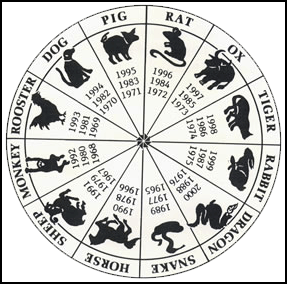
Ancient Chinese zodiac
The Chinese zodiac is based on a centuries-old system based on natural elements, marked by fixed colors and assigned a dozen animals as they correspond to the hour, date, month and year of birth. To make leap year adjustments, the colors of white, black, green, red and brown also are assigned.
The Chinese Zodiac is based on years rather months. Each year in a 12-year cycle is named after a different animal, with distinct characteristics associated with that animal. Many Chinese believe that the year of a person's birth is the primary factor in determining a person's personality traits, mental and physical attributes and success in love and life. Each of the 12 Chinese zodiac animals are combined with the five basic influences of fire, earth, metal, water and wood” each with a yin (female) form and a yang (male) form — to form a cycle of 60. The yin and yang years alternate with one another, and each of the five phases has both a yin and a yang form. Hare years are always yin, representing the female, soft and cool principles of the universe.
A 10-year cycle that runs concurrently with 12-year cycle defines whether years in the 12-year cycle are auspicious or inauspicious ones. The year 1966 — the Year of the Fiery Horse — was regarded as a bad year for girls and was marked by a significant reduction in births. It was said girls born that year suffer from a “dire fate” and would be "un-marriageable man eaters." The year 2007 — the Year of the Gold Pig — was regarded as a good year to have children because there was a good chance they would be rich. The next Fiery Horse year is 2026.
Websites and Sources: Traditional Religion in China: Wikipedia article Wikipedia ; Religion Facts religionfacts.com; Folk Beliefs and Superstitions: Chinatown Connection chinatownconnection.com ; New York Times on Earthquake superstitions nytimes.com ; Old Book on Superstitions archive.org/ or Old Book PDF Fileus.archive.org/2/items ; Five Elements chinatownconnection ; I Ching Wikipedia article Wikipedia ; Robert Eno, Indiana University, Chinatxt Ancient Chinese History and Religion chinatxt ; < Lucky Numbers Wikipedia article Wikipedia ; New York Times article nytimes.com ; News in Science abc.net.au ; Symbols Chinatown Connection chinatownconnection.com ; What’s Your Sign whats-your-sign.com
RELATED ARTICLES IN THIS WEBSITE: FOLK RELIGION, SUPERSTITION, FUNERALS factsanddetails.com; TAOISM factsanddetails.com; FOLK RELIGION IN CHINA: QI, YIN-YANG AND THE FIVE FORCES factsanddetails.com; RELIGION, DIVINATION AND BELIEFS IN SPIRITS AND MAGIC IN ANCIENT CHINA factsanddetails.com; GODS AND SPIRITUAL BEINGS IN CHINA factsanddetails.com; ANCESTOR WORSHIP: ITS HISTORY AND RITES ASSOCIATED WITH IT factsanddetails.com; QI AND QI GONG: POWER, QI MASTERS, BUSINESS AND MEDITATION factsanddetails.com; CHINESE TEMPLES AND RITUALS factsanddetails.com; YIJING (I CHING): THE BOOK OF CHANGES factsanddetails.com; SYMBOLS AND LUCKY NUMBERS IN CHINA factsanddetails.com; CHINESE GHOSTS: GHOST MONTH, CHINESE GHOSTBUSTER AND GHOST MARRIAGES factsanddetails.com; IDEAS ABOUT DEATH, GHOSTS AND THE AFTERLIFE IN CHINA factsanddetails.com; FORTUNETELLERS, DIVINATION, AND SUPERSTITION IN CHINA factsanddetails.com
RECOMMENDED BOOKS: “The Handbook of Chinese Horoscopes” by Theodora Lau and Laura Lau Amazon.com; “The Guide to Chinese Horoscopes: The Twelve Animal Signs” by Gerry Maguire Amazon.com; “The Chinese Zodiac: And Other Paths to Luck, Riches & Prosperity” by Aaron Hwang and Li Zhang Amazon.com; “12 Chinese Zodiac Signs : Personality Traits, Birth Years, Five Elements, Yin/Yang, Compatibility, Lucky Numbers, Lucky Colors, Lucky Flowers, ... of Profession, Challenging Personality Traits” by Berry First Amazon.com; “Chinese Astrology: Exploring the Eastern Zodiac” by Shelly Wu Amazon.com
Age and Birth Signs in China
In China when you ask people how old they are it is not uncommon for them to respond with their a zodiac sign rather than their birth year. To gage their age you have to look at them and judge how old they look and then pick the birth year of their sign that most closely matches their appearance. But zodiac signs tell you more than just when a person was born. When someone responds ‘I am a pig’ it also imparts information about character, personality, preferences and compatibility with others as well as age. [Source: “CultureShock! China: A Survival Guide to Customs and Etiquette” by Angie Eagan and Rebecca Weiner, Marshall Cavendish 2011]
Angie Eagan and Rebecca Weiner wrote in “CultureShock! China”: When in discussion with a Chinese over age, remember that they often reference the lunar calendar when calculating their age and so the age that they tell you does not tie to the Gregorian calendar, which typically creates a discrepancy of a year. Oftentimes, someone who tells you that they are 29 years old would be 28 by Gregorian calendar standards. Most cosmopolitan Chinese have an understanding of the difference and will automatically adjust their answer to the Western context.[Source: “CultureShock! China: A Survival Guide to Customs and Etiquette” by Angie Eagan and Rebecca Weiner, Marshall Cavendish 2011]
Birth rates in Asia go up in years of the dragon, considered an auspicious sign, and decline in years of the tiger, considered years that produce difficult children.
Chinese Year Animals
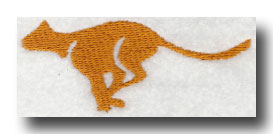 Year of Rat : 1972, 1984, 1996, 2008, 2020...
Year of Rat : 1972, 1984, 1996, 2008, 2020...
Year of Ox: 1973, 1985, 1997, 2009, 2021...
Year of Tiger : 1974, 1986, 1998, 2010, 2022...
Year of Rabbit: 1975, 1987, 1999, 2011, 2023...
Year of Dragon : 1976, 1988, 2000, 2012, 2024...
Year of Snake: 1977, 1989, 2001, 2013, 2025...
Year of Horse: 1978, 1990, 2002, 2014, 2026...
Year of Goat: 1979, 1991, 2003, 2015, 2027...
Year of Monkey: 1980, 1992, 2004, 2016, 2028...
Year of Rooster : 1981, 1993, 2005, 2017, 2029...
Year of Dog : 1982, 1994, 2006, 2018, 2030...
Year of Pig : 1983, 1995, 2007, 2019, 2031...
According to legend on how the Chinese zodiac was created time was divided into sets of 12 after the earth and the heavens were separated at the beginning of the universe. The Chinese calendar was created by the legendary Heavenly Jade Emperor who held a race with all the world animals, giving places on the calender to the top 12 finishers. The rat won the race after tricking the ox into giving him a ride to the finish line, where he jumped off to win. The rat was supposed to wake up her neighbour the cat in the morning, but forgot. The rat joined the race in the middle, climbing on the ox after he had established a comfortable lead. The ox finished second, followed by the tiger, the rabbit, the dragon, the snake, the horse, the goat, the monkey, the rooster, the dog and the pig, which is the order of the zodiac. The cat arrived far too late and didn’t make it into the zodiac. This is why cats hates rats and are always trying to kill them. [Source: Barbara Laban, The Guardian, February 8, 2016]
Rats, Oxen and Tigers
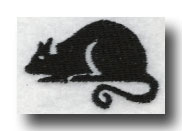 The Rat is the first of all the Chinese Zodiac animals.According to an ancient Chinese folk story, the order of the animals was determined after a ‘Great Race’ was set up by the Jade Emperor. In the race, 13 animals lined up at the starting line. The rat, traveled on the back of the ox most of the race and leapt just before the finish line to win. The 13th animal now not part of the zodiac is said to have been a cat that participated in the race but drowned. [Source: Laura Hampson, Yahoo Style UK, February 11, 2021 +++]
The Rat is the first of all the Chinese Zodiac animals.According to an ancient Chinese folk story, the order of the animals was determined after a ‘Great Race’ was set up by the Jade Emperor. In the race, 13 animals lined up at the starting line. The rat, traveled on the back of the ox most of the race and leapt just before the finish line to win. The 13th animal now not part of the zodiac is said to have been a cat that participated in the race but drowned. [Source: Laura Hampson, Yahoo Style UK, February 11, 2021 +++]
Rats (born in 1936, 1948, 60, 72, 84, 96) are linked with prosperity, wealth, surplus and dynamism. They are regarded as charming, generous, ambitious, honest, and like to spend money but also can be quick tempered and have difficulty forming long term friendships. They are most compatible with dragons and monkeys, and least compatible with horses. Rats make good writers, salespersons and publicists. Famous rats include Shakespeare, Mozart, Churchill, Barack Obama (1961) and Kylie Jenner (1997). [Source: Chinese restaurant menus]
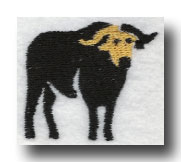
Oxen or Buffalo (1937, 1949, 61, 73, 85, 97) are considered hardworking and reliable like oxen and make good leaders. They are bright, patient, happy with themselves and have the ability to inspire others but have a reputation for being demanding and conservative. They are most compatible with snakes and roosters, and least compatible with sheep. Oxen make good surgeons, managers and generals. Famous oxen include Napoleon, Van Gogh and Richard Nixon.
2021 was the Year of the Ox. It was not regarded as a particularly lucky year. However, wearing red and jade accessories is said to help bring some more luck back into your life. 2021 was the year is the Year of the Metal Ox, which means it’s a good year for giving birth as metal is known for its stability and longevity. +++
Tigers (1938, 1950, 62, 74, 86, 98) are used as a shield against evil and are thought of as aggressive, courageous, emotional, passionate, hotheaded, candid, sensitive, rebellious and foolish. They are most compatible with horses and dogs, and least compatible with monkeys. Tigers make good bosses, race car drivers and explorers. Famous tigers include Marco Polo, Mary Queen of Scots and Marilyn Monroe.
Rabbits
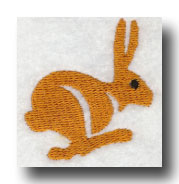
Rabbits (1939, 1951, 63, 75, 87, 99) are the luckiest of all signs. Rabbits are regarded as talented, articulate, affectionate yet shy, and peace seekers. Sometimes others thinks of them as superficial, conservative and overly sentimental. They are most compatible with sheep and pigs and least compatible with roosters. Rabbits make good lawyers and diplomats. Famous rabbits include Confucius, Albert Einstein and Orson Welles.
Rabbit are honest, sensitive, tactful, stylish, sophisticated, virtuous, private, quietly charismatic, thoughtful, calm and modest, but they also are viewed as snobbish, standoffish, introverted and withdrawn, self-righteous, oversensitive and a little unpredictable. In Vietnam, the rabbit is not a rabbit at all but a cat, which failed to make the top 12 in China, according to legend.
Elizabeth VanderVen, an assistant history professor at Rutgers University and a specialist on Chinese and eastern Asian culture told AP: “Rabbits are considered to be especially lucky financially,” noting that some believe rabbits are the luckiest of all signs in the Chinese Zodiac. This is thought be especially true in 2011 because the 2011 rabbit year corresponds with the element of metal, symbolizing great wealth. [Source: AP, January 12, 2011]
Famous rabbits include baseball superstar Alex Rodriguez, movie stars Johnny Depp, Angelina Jolie, Brad Pitt, Charlize Theron, Drew Barrymore; pop music singer-songwriter Enrique Iglesias; British author George Orwell; Frank Sinatra; Albert Einstein and Leon Trotsky.
The rabbit comes fourth in the zodiac’s 12-year cycle. Rabbit years include 1927, 1939, 1951, 1963, 1975, 1987 and 1999 on the more international Gregorian calendar, as opposed to the luni-solar Chinese calendar that pegs 2011 as 4708. The rabbit year 2011 is white yin metal, likely making the precious metal of silver prominent, so watch for lots of silver souvenirs. “The 2011 rabbit will obtain wealth if she or he works hard and diligently,” VanderVen predicts.
Dragons
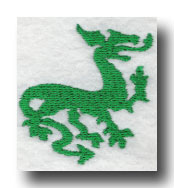 Dragons (1940, 1952, 64, 76, 88, 2000) are considered eccentric, extroverted, complex, intelligent, passionate and healthy and have been described as adventurous dreamers with strong leadership qualities. Sometimes they are seen as foolish, indiscreet and demanding. They are most compatible with rats and monkeys, and least compatible with dogs. Dragons make good artists and politicians. Famous dragons include Joan of Arc and Freud.
Dragons (1940, 1952, 64, 76, 88, 2000) are considered eccentric, extroverted, complex, intelligent, passionate and healthy and have been described as adventurous dreamers with strong leadership qualities. Sometimes they are seen as foolish, indiscreet and demanding. They are most compatible with rats and monkeys, and least compatible with dogs. Dragons make good artists and politicians. Famous dragons include Joan of Arc and Freud.
The dragon outranks the other 11 animal signs in the Chinese zodiac in China as it is the ultimate emblem of the Chinese nation and race. Paradoxically, it represents power and unmitigating authority on the one hand but benevolence and blessings on the other. Dragon years should be filled with happiness, security, abundance and prosperity. Kent Ewing wrote in the Asia Times: The dragon is the most revered and auspicious animal in the Chinese zodiac. It has long been the preeminent symbol of imperial power in China; indeed, the first set of stamps issued in the country - during the Qing Dynasty, in 1878 - bore the image of a giant dragon. [Source: Kent Ewing, Asia Times, January 24, 2012]
The thrashing, fire-breathing ferocity of Western dragons may inspire fear and loathing, but in Chinese lore dragons are fierce and frightful because - like the emperors they have represented - they offer protection and security while also possessing mythical powers to ward off evil spirits and disasters.
The birthrate in dragon years often leaps because it is the most auspicious in the Chinese almanac. In 2000, the previous Year of the Dragon, birth rates in Hong Kong shot up 5.6 percent, to 54,134, according to official data, and an even bigger spike, spurred by mainland mothers-to-be dodging China's one-child policy, is anticipated in 2012. Leo Lewis wrote in The Times: “Of all stops along the 12-year Chinese zodiac cycle, the Year of the Dragon has the clearest economic effects. The Chinese marry more and bear more children in a "lucky" dragon year: in a frenetically gift-giving culture growing wealthier all the time, 20 million births and 12 million marriages will translate directly into big sales of gold. [Source: Leo Lewis, The Times, January 23, 2012]
Snakes, Horses and Sheep

Snakes (1941, 1953, 65, 77, 89, 2001) are thought of as wise, intense, vain, romantic, short tempered and beautiful or handsome. They have a good sense of humor but can be tight with their money and procrastinate on important decisions. They are most compatible with roosters and oxen, and least compatible with pigs. Snakes make good teachers, psychiatrists and fortunetellers. Famous snakes include Darwin, Lincoln and Edgar Allen Poe.
Horses (1942, 1954, 66, 78, 90, 2002) are considered an unlucky sign. They are popular, intelligent, attractive and have a large capacity for hard work but are also often impatient, egotistical and ostentatious. They are most compatible with tigers and dogs, and least compatible with rats. Horses make good scientist, poets and politicians. Famous horses include Rembrandt, Chopin and Teddy Roosevelt.
Sheep and Goats (1943, 1955, 67, 79, 91, 2003) are regarded as elegant, creative, timid and prefer anonymity. They often don’t give a good first impression but become more likable once you get to know them better. They have a tendency to be pessimistic and worry a lot and are most compatible with pigs and rabbits, and least compatible with oxen. Sheep make good actors and gardeners. Famous sheep include Michelangelo, Mark Twain and Rudolph Valentino.
Monkeys (1944, 1956, 68, 80, 92, 2004) are intelligent, enthusiastic and goal-oriented but are easily discouraged and confused. They have the ability to easily influence other people but are sometimes distrusted by other people and viewed as opportunists. They are most compatible with dragons and rats, and least compatible with tigers. Monkeys are usually successful at any endeavor they undertake. Famous monkeys include Julius Caesar, Leonardo da Vinci and Elizabeth Taylor.
Monkeys, Roosters, Dogs and Pigs
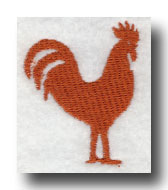
Roosters (1945, 1957, 69, 81, 93, 2005) are devoted to their work, creative, shrewd, selfish, eccentric and seekers of knowledge. Sometimes regarded as dreamers, they can be boastful, extravagant and are known for speaking their mind. They are most compatible with snakes and oxen, and least compatible with rabbits. They make good soldiers, travelers and restaurant owners. Famous roosters include Rudyard Kipling, Caruso and Groucho Marx
Dogs (1946, 1958, 70, 82, 94, 2006) are regarded as loyal. honest, stubborn, idealistic, supportive and sometimes selfish. They have a tendency to find fault with others and worry a lot and tend to be good listeners, insecure pessimists and find others take advantage of their loyalty. They are most compatible with horses and tigers, and least compatible with dragons. Dogs make good businessmen, teachers and spies. Famous dogs include Socrates, Benjamin Franklin and George Gershwin.
Pigs (1947, 1959, 71, 83, 95, 2007) are considered one of the unluckiest signs. They are regarded as spirited, noble, chivalrous, fun to be with, likes challenges, intellectual. sincere, tolerant, spontaneous, living for the moment and not likely to "look to far beyond tomorrow." They establish long term friendships but are sometimes naive and often have marriage problems . They are most compatible with rabbits and sheep, and least compatible with other pigs. Pigs are associated with abundance and years of the pig are regarded as years of plenty, The Year of the Gold Pig on the 60-year cycle (next in 2031) is especially good. Lots of children are born on that year and sales of gold pig charms are brisk. Pigs make good lawyers and entertainers. Famous pigs include Albert Schweitzer and Ernest Hemingway.
Marriage Compatibility According to the Chinese Zodiac
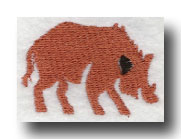 The Chinese zodiac sign is based on a 12-year cycle, each year represented by an animal, associated with a specific type of personality. As such, those born under a certain Chinese zodiac also bear the same characteristics of their sign. As ritual to ensuring marital bliss, soon-to-wed couples, consult their Chinese zodiac sign to see if they are compatible with their soon-to-be partner for life. [Source: Jonathan Dionisio, July 13, 2009 /*/]
The Chinese zodiac sign is based on a 12-year cycle, each year represented by an animal, associated with a specific type of personality. As such, those born under a certain Chinese zodiac also bear the same characteristics of their sign. As ritual to ensuring marital bliss, soon-to-wed couples, consult their Chinese zodiac sign to see if they are compatible with their soon-to-be partner for life. [Source: Jonathan Dionisio, July 13, 2009 /*/]
It is easier to identify incompatible signs of the Chinese zodiac. The main reason why certain zodiac signs are incompatible with one another is because of the clash of their personalities. For example those born under the year of the Dragon (1964, 1976, 1988) are said to have “quick, sometimes vengeful tempers”. They are also known to be aggressive and dominant. With this, they become incompatible with people born in the Year of the Dog (1958, 1970, 1982) since they have “a sharp tongue and a tendency to be a faultfinder”. /*/
Here is the complete list of incompatible signs: 1) Rat (1960, 1972, 1984, 1996) and Horse (1954, 1966, 1978, 1990); 2) Ox (961, 1973, 1985, 1997) and Sheep (1955, 1967, 1979, 1991); 3) Tiger (1962, 1974, 1986, 1998) and Monkey (1956, 1968, 1980, 1992); 4) Rabbit (1963, 1975, 1987, 1999) and Rooster (1957, 1969, 1981, 1993); 5) Dragon (1952, 1964, 1976, 1988, 2000) and Dog (958, 1970, 1982, 1994); 6) Snake (1965, 1977, 1989, 2001) and 7) Pig (1959, 1971, 1983, 1995). /*/
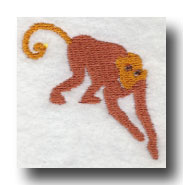 On the other end, there are Chinese zodiac signs that are perfect for each other. They complement the personal traits of their partner’s signs. To establish compatibility, astrologers have grouped each of the twelve signs into four trines. By definition, a trine is a Ptolemaic aspect with an angle of 120̊ (1/3 of the 360̊ ecliptic), represented by the triangle. The trine indicates harmony, and ease of expression, with the two elements reinforcing each other. In Chinese astrology, each trine is evenly spaced at four years apart. People born under similar trines are said to have the same traits, mindset, and personality. This makes the couple with the same group of trine very compatible. /*/
On the other end, there are Chinese zodiac signs that are perfect for each other. They complement the personal traits of their partner’s signs. To establish compatibility, astrologers have grouped each of the twelve signs into four trines. By definition, a trine is a Ptolemaic aspect with an angle of 120̊ (1/3 of the 360̊ ecliptic), represented by the triangle. The trine indicates harmony, and ease of expression, with the two elements reinforcing each other. In Chinese astrology, each trine is evenly spaced at four years apart. People born under similar trines are said to have the same traits, mindset, and personality. This makes the couple with the same group of trine very compatible. /*/
1) First Trine: Rat, Dragon, and Monkey: These three signs are said to be the most powerful signs in the Chinese zodiac. People born under these signs are said to be capable of great good or great evil. When it comes to relationships, they are highly intelligent, charming, yet authoritative. Their relationships are usually intense and would like it to remain that way. 2) Second Trine: Ox, Snake, and Rooster: Members of the second trine are known to conquer life through endurance, application, and slow accumulation of energy. They are meticulous planners, and are very good at it. Also, they are loyal, philosophical, patient, good-hearted, and has high moral values. /*/
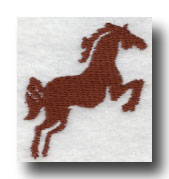 3) Third Trine: Tiger, Horse, and Dog: People born in the year of the Tiger, Horse, and Dog can simply be described as the 'true romantics'. They set relationships and personal contacts as their highest priorities. The third trine signs are also productive, engaging, independent, and loyal. They have the tendency be very protective. The three signs do not enjoy being told what to do, but will listen when comes from a person they love or trust whole-heartedly. 4) Fourth Trine: Rabbit, Sheep and Pig: The last trine is a seeker of beauty in life. They are capable of great sacrifices for the sake of their loved one. These three signs are compassionate, caring, sensible, emphatic, prudent, and are very affectionate. Off all the four, members of the fourth trine possess a calmer nature than the rest of the zodiacs. Incidentally, they are fine artists in their lovemaking. /*/
3) Third Trine: Tiger, Horse, and Dog: People born in the year of the Tiger, Horse, and Dog can simply be described as the 'true romantics'. They set relationships and personal contacts as their highest priorities. The third trine signs are also productive, engaging, independent, and loyal. They have the tendency be very protective. The three signs do not enjoy being told what to do, but will listen when comes from a person they love or trust whole-heartedly. 4) Fourth Trine: Rabbit, Sheep and Pig: The last trine is a seeker of beauty in life. They are capable of great sacrifices for the sake of their loved one. These three signs are compassionate, caring, sensible, emphatic, prudent, and are very affectionate. Off all the four, members of the fourth trine possess a calmer nature than the rest of the zodiacs. Incidentally, they are fine artists in their lovemaking. /*/
For couples who are neither in the compatible or incompatible group (example, Tiger and Rabbit), the degree of their compatibility may vary. This depends upon their personalities and the nature of their relationship. Whether compatible or not, the married life of a couple depends on themselves. Their love, respect, and understanding for each other should serve as the foundation of their relationship. Their ideals and characteristics may cause conflict at times, but surely, by the end of the day, their love for one another should transcend their differences. Best wishes! /*/
Birth Year Beliefs and Births in China
Some Chinese women give birth prematurely by a Caesarean operation to ensure that their children have lucky birthdays. Around the time of some auspicious day or the beginning of lucky years some clinics and hospitals become overrun with women seeking Caesareans. At one provincial hospital a 50-year-old man reportedly died of stroke because doctors were too preoccupied doing Caesarean operations. A rise in births in Guizhou and other provinces, some said was attributable to a rush to have babies in the year of the horse. Other said it was the result of the easing of the one-child policy remained unclear.
Julie Makinen wrote in the Los Angeles Times, “Ma Yan, now of the Chinese Academy of Social Sciences, published a study in 2010 looking at birthrate data between 1949 and 2008 and found no discernible zodiac-based preferences. Duan Chengrong, a demographer at Renmin University in Beijingwho has also published research on the topic and come to similar conclusions, said the government has little to worry about despite the plethora of media coverage. "It's unclear how prevalent beliefs in such sayings are," Duan said, but "our research showed there was no significant influence on national birthrate statistics." [Source: Julie Makinen, Los Angeles Times, January 19, 2015 *]
“Still, Duan noted, if zodiac-based preferences are particularly strong in a localized area, it could skew birthrates, affecting schools and other public facilities that might see a bulge in enrollment one year and a sharp decline the next. "If the rates are not stable, this can cause problems for planning," he said. *\
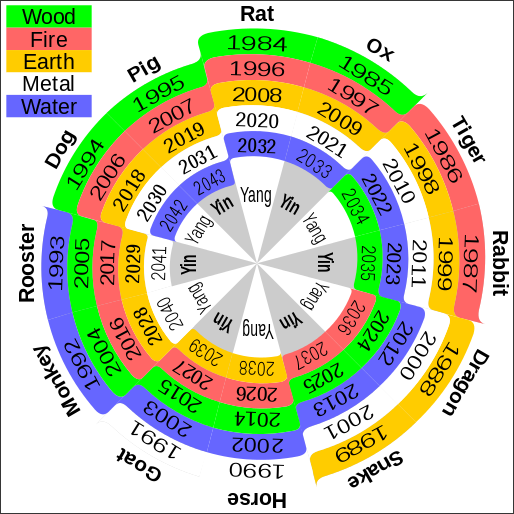
Sexagenary cycle
Dragon Year 2012
Kent Ewing wrote in the Asia Times: The Year of the Dragon 2012, which began on January 23, got off to a bad start before it even began. How else to explain the critical reaction within China to a commemorative postage stamp issued by China Post depicting the dragon as the fierce, fanged and clawed mythical creature it is supposed to be. "Too scary!" media critics complained. "Inappropriate," cried scores of politically correct microbloggers. [Source: Kent Ewing, Asia Times, January 24, 2012]
Now, as the fireworks explode and the celebrations commence, the dragon debate rages on: Is this the menacing image a rising China wants to present to the rest of the world? To which this self-anointed feng-shui commentator responds: Absolutely - unless this is to be the year that China becomes known as a nation of 1.3 billion wimps. Who would you rather have guarding the commonweal of your nation - a Chinese dragon or Mickey Mouse?
Feng-shui masters said that better-than-expected economic news was due the influence of the advancing dragon chasing the rabbit to the back of the zodiacal queue. As the euro zone heads toward the financial abyss and the US economy continues to limp along, the fierce protection offered by the dragon should provide China with a proverbial soft landing in the coming year. At least, that is what Chinese leaders hope and pray for. According to their sobering (and very un-geomantic) calculations, growth of under 8 percent could wreak enough economic havoc to provoke social unrest - unleashing the darker side of the Chinese dragon's ferocity. No one wants that, and most fortune-tellers assert that this year's dragon possesses enough strength to pull China through the economic trough that is expected in 2012.
But the ancient art of feng shui goes well beyond simply taking note of which of the 12 animals of the zodiac occupies center stage in any given year. There are also the five basic elements to contend with - metal, wood, water, fire and earth. This year (2012) is dominated by two elements - water and earth. Since these elements are eternally locked in a destructive relationship, the Year of the Dragon will not be without conflict and natural disasters. Expect the politics of the Middle East and North Africa to continue to roil while the earth shakes and the seas bulge and surge. Prepare yourself for a wild ride, although also remember that in the end the dragon is there for assurance and protection.
The total absence of the fire element this year spells bad news for stock markets and the world of finance. The mediating influence of earth should prevent disaster, but count on a wet year for the world economy. Be careful and conservative in investments - or get soaked.
In preparation for the onslaught of Dragon year babies, the Hong Kong government has raised obstetric fees at public hospitals for women from the mainland and also capped the number of deliveries by mothers who are not residents of Hong Kong at 3,400 in public hospitals and 31,000 in private hospitals. These caps, however, have prompted some desperate mainland moms to turn up at the emergency wards of the city's hospitals to have their babies. This, in turn, has led immigration officials to begin implementing checks on mainland women at the border and to turn back any visibly pregnant women who cannot prove that they have a booking at a Hong Kong hospital - an awkward and imprecise art at best.
The irony in all this is that Hong Kong's fertility rate is among the lowest in the world and its rapidly aging population poses a threat to the city's future development. In other words, Hong Kong needs more babies, lots of them.

Song Dynasty painting, Nine Dragons
Year of the Dragon: Popular for Mothers Giving Birth
The year of the dragon is considered a auspicious time to have children. The year 2000 was regarded as particularly auspicious because it was the beginning of a new millennium, or "Qian Xi," "Year of a Thousand Happiness." Consequently, there were dramatic increases that year in the number of children born in countries with large Chinese populations.
Mara Hvistendahl wrote in The Atlantic, ““Do you want a C-section or a natural birth?” snapped the receptionist. It was June, and I had just dialed up the VIP ward at one of Shanghai’s best maternity hospitals. “Shunchan,” I said, taken aback. Natural birth. “When are you due?” I didn’t know. I guessed I was maybe six weeks along. “Okay,” she said. “But if you don’t reserve with us by the end of the first trimester”—by reserve she meant put down cash—“there won’t be a spot for you.” [Source: Mara Hvistendahl, The Atlantic, January 2, 2013]
“Pregnant women have heard similar refrains in hospitals across China this Year of the Dragon, which started last January and ends in February. A symbol of power once associated with the emperor, the dragon is the lone mythical creature of the Chinese zodiac and is by many accounts the 12-year cycle’s single most auspicious sign. What expectant parent wouldn’t prefer a heavenly totem to a rat, a snake, or—my own sign, which a Chinese friend once gently described to me as a “work animal”—a sheep?
“As we visited maternity wards, though, my partner and I began to think our luck was, in fact, not so good. At our first stop, couples lined the walls of the waiting area. To make my way to the ultrasound room, I had to push through a mob of women with swollen bellies, men gazing intently at smartphones, and hovering grandmothers-to-be. The scan itself took only five minutes. Afterward, a technician handed me a printout with characters that translated to “living fetus,” and ushered me out of the room. Case closed: I was having a dragon baby.
“In Taiwan, between January and September 2012, births were up 14.5 percent versus the same period in 2011. Vietnam saw an additional 61,375 babies born in the first five months of 2012—a spike of 13.5 percent from the previous year. Similar statistics are not yet available for China, but a dip in the birthrate in 2011—a mere rabbit year—suggests that couples may have been postponing procreation, says the University of North Carolina demographer Cai Yong (whose own dragon baby was born last February). Tang Hui, the director of obstetrics and gynecology at the largest hospital in Nanning, the capital of Guangxi province, told me when I visited her hospital that deliveries there had gone from about 200 a month in years past to between 270 and 280. “Just look at how many people are here,” she said, gesturing to the rows of expectant women in uncomfortable plastic chairs.
“Some maternity wards have added beds; others are housing new moms in pediatric wards. In Vietnam, women have even had to share beds. Hospitals have turned away women in labor. One mother-to-be, Xie Mingqin, was told her situation wasn’t yet urgent. She promptly gave birth in the parking lot. At least that will not be my fate, come my January due date: heeding the receptionist’s warning, I managed to book a spot at a hospital catering to expatriates and wealthy Shanghainese.
“The future that awaits our dragon baby, however, is less certain. Although China’s birthrate remains precipitously low—one dragon year will not reverse the consequences of the decades-old one-child policy—officials warn about a squeeze as dragon children grow up. Blessed at birth, they may be cursed in life, forever paying the price for their parents’ calculations, in crowded schools, fierce rivalry for university places, cutthroat battles for first jobs. Some childless couples, Cai tells me, are now talking of waiting for a less lucky year to conceive.”
Chinese Couples Shun ‘Sheep Year Babies’
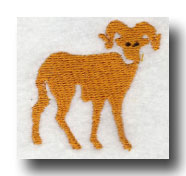
Some in China fear a drop in the birthrate during the year of the sheep, which began on February 19, 2015. Traditionally Chinese women have liked to give birth to children in auspicious years such as the years of the monkey, dragon or pig. The bad rap over being born in the year of the sheep has to do with the belief that sheep babies will be unhappy, exhausted and live strenuous lives. A Shanghai fortuneteller told CCTV: “If you are a sheep you are very generous. You exhaust your energy in doing things,” Jialing said. “So your life will be more tiresome, more strenuous.” There is a Chinese expression: “Only 1 out of 10 sheep people can find happiness in their lives.'"
Meika Chin, a midwife at Shanghai United Family Hospital, told CCTV she has seen a drop in those having children in the year of the sheep. If I see some of the women and talking to them and if they’re married this year, they’ll say that they’re going to skip the Year of Sheep and have the baby the year after,” Chin said. T”his affects the amount of people having babies, there’s definitely a drop, probably around 20 percent.” [Source: Li Nan, CCTV, February 15, 2015]
Julie Makinen wrote in the Los Angeles Times, “Chen Lei runs a Shanghai business that helps pregnant Chinese women fly to Southern California and give birth in hospitals” there. “But come Feb. 19 — when the Chinese New Year begins, closing out the year of the horse and ushering in the year of the sheep — he's anticipating a sharp drop in clientele for his company, Xiduo Baby. "We expect the number of women who will give birth via our center during the year of the sheep to fall by around 30 percent. There's nothing we can do about it," Chen lamented. Instead, many couples may be planning to wait several months into the new year to get pregnant, thereby ensuring their offspring will be born under the subsequent zodiac symbol. "I think there will be a peak during the year of the monkey," Chen predicted, referring to the year that will start Feb. 8, 2016. [Source: Julie Makinen, Los Angeles Times, January 19, 2015 *]
“Though some studies say statistics don't bear out the premise of zodiac-challenged birth years, Chen is hardly the only one discussing shifts in childbearing plans. State-run news outlets in recent weeks have been reporting that some hospitals have seen increases in caesarean deliveries, as couples try to ensure their offspring are born in the current year of the horse, which is regarded as more fortunate. Hospitals in Guizhou,Shandong and Liaoning provinces have all reported such an upswing in births that they've been caught without enough birth certificates to issue. Meanwhile, abortion consultations have also seen a jump, according to official media. All of this, of course, was preceded by dispatches about nine months ago about couples furiously trying to get pregnant "in time" to ensure a horse baby. *\
“The bad buzz over being born in the year of the sheep centers on the notion that such people are — like the animals — "meek and destined for slaughter rather than success," the Communist Party-run Global Times newspaper explained, while adding that the sign also is associated with characteristics including loyalty, generosity and passivity. Among those who believe in Chinese astrology, the sheep is seen as particularly disadvantageous to women. Unflattering sayings about people born in the year of the sheep, according to CCTV, date to the early 1900s, when people aiming to overthrow the Empress Dowager Cixi — a sheep baby — cooked up such phrases to smear her. Other sources, though, say Cixi herself cooked up the notion, to discourage potential rivals. *\
Battling the Bad Buzz Chinese Couples Shun ‘Sheep Year Babies’
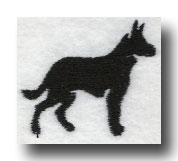 Julie Makinen wrote in the Los Angeles Times, “The negative chatter over the year of the sheep prompted state-run China Central Television in November to issue a message on its Weibo microblog site that sayings such as "women born in the year of the sheep don't live long" are false. "Know the truth and don't spread the fallacies from year to year," CCTV urged, pointing out that such eminent personages as Thomas Edison, Steve Jobs and Rupert Murdoch were all born under the sheep sign, which is also sometimes known as ram or goat. [Source: Julie Makinen, Los Angeles Times, January 19, 2015 *]
Julie Makinen wrote in the Los Angeles Times, “The negative chatter over the year of the sheep prompted state-run China Central Television in November to issue a message on its Weibo microblog site that sayings such as "women born in the year of the sheep don't live long" are false. "Know the truth and don't spread the fallacies from year to year," CCTV urged, pointing out that such eminent personages as Thomas Edison, Steve Jobs and Rupert Murdoch were all born under the sheep sign, which is also sometimes known as ram or goat. [Source: Julie Makinen, Los Angeles Times, January 19, 2015 *]
“A young woman surnamed Wang who was walking her 2-year-old daughter in Beijing's Ritan Park on Tuesday said a lot of people in her hometown in Shaanxi province still clung to the idea that sheep babies were doomed to bad fates, though she put no stock in such beliefs. "Some people really care about this, older people," she said. "It's a tradition." But 71-year-old Li Chunhua disagreed. "I was born in the year of the sheep, and a lot of my classmates were too. We all had happy lives," she said, sitting on a park bench with her husband. "Us old people don't believe in this; it's the young people nowadays, who maybe are not properly educated, who do." *\
Some parents see a sheep baby as an advantage not a disadvantage. “Lots of people try to avoid having sheep babies. But that means my baby won’t have as much competition, which is great,” one woman told CCTV. “I hope in the Year of the Sheep that my boyfriend and I can get married,” another said. [Source: Li Nan, CCTV, February 15, 2015]
Image Sources: Wikimedia Commons; 1) Ancient Chinese zodiac, Art Museum of Chicago; 2) Chinese zodiac, All China net
Text Sources: New York Times, Washington Post, Los Angeles Times, Times of London, National Geographic, The New Yorker, Time, Newsweek, Reuters, AP, Lonely Planet Guides, Compton’s Encyclopedia and various books and other publications.
Last updated September 2021
